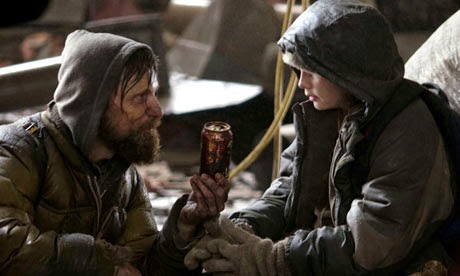Teen culture has
changed a lot over time in many respects, but one aspect has always been
important, though it has been presented in different ways throughout history.
Beauty and the definitions surrounding it have always been central to teenage
life. Everyone wants to look good, to be attractive and desirable. Because in
the world of teenagers, desirability equals power and at a time when a person
feels so powerless any shred of power is coveted.
Here are three different
takes on this topic:
A. In teen movies the pressure to
be attractive is especially true for female characters. There are some
exceptions, but for “nerdy” male characters, they usually believe they will
impress their crushes by doing something,
while similar female characters are encouraged to change their looks to impress
their guy. Movies tend to focus on this transformation of a female character.
Movies like Grease, She’s All That, The Princess Diaries and more recently The D.U.F.F., all feature female leads who win the affections of a
guys after undergoing some sort of makeover. Whether its poodle skirts to
leather pants , as in Sandy’s case, or getting contacts and straightening her
hair, like Mia, these characters’ beauty are directly connected to their
success.
B. In television, the issues of
beauty often surround competition between girls. As a TV show has to be long
running it is not enough for a character to simply get a makeover. Writers
create tension by pitting girls against each other to win the affections of a
guy. Often the question is not much more complicated than, “Who is prettier?”
In Gossip Girl, for instance, tension arises between Serena
and Blair over the affections of Nate who cheated on Blair with Serena. On Dawson’s Creek, girl-next-door Joey and exotic (from N.Y.) new girl Jen, compete for Dawson’s attraction.
 |
| Actual 16 year old James Van Der Beek vs. 21 year old James playing 15 year old Dawson |
C. TV impacts real teen body image because nearly all of the
time, actors playing teenagers are much older than that of their characters. This
gives teenagers, already insecure about their bodies, more anxieties. These
characters who are supposed to be their age look so much older and more
attractive. This is not just for female characters. James Van Der Beek played 15 year old Dawson when he was 21 years old. This can cause a lot of insecurity
because teen bodies are not done changing. Teenagers are often called vain for obsessing over clothes and makeup, but is it really that strange when they are constantly inundated with images of what they are supposed to look like?

















